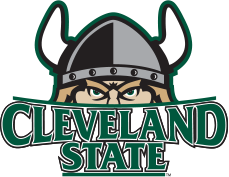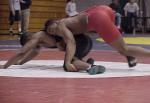May 31, 2002
A diverse group of nearly 300 NCAA student-athletes, including Cleveland State wrestler Gerald Harris, met to discuss key issues that affect them on campus and in their communities May 26-30 in Orlando, Florida, at the NCAA Foundation Leadership Conference. The conference is one of the largest non-competitive gatherings of NCAA student-athletes.
Harris, a two-time NCAA qualifier, is an active member of Cleveland State's Student-Athlete Advisory Board.
The leadership conference was designed to enhance student-athletes' leadership and communication skills to enable them to become more effective leaders and motivators when they return to their campuses. Like Harris, many of the participants in the leadership conference are members of NCAA campus student-athlete advisory committees or boards (SAAC or SAAB.) A campus SAAC is a committee made up of student-athletes assembled to provide insight on the student-athlete experience. The SAAC also offers input on the rules, regulations and policies that affect student-athletes' lives on the NCAA member institution campuses and it is the "student voice" in the NCAA's governance structure.
Towards the conclusion of the leadership conference, the student-athletes were asked to create a self-directed project to implement on their campus that addresses a critical issue in the university setting.
The conference is an extension of the NCAA's successful CHAMPS/Life Skills Program - a development program structured to prepare student-athletes for graduation and success in life. Each NCAA college and university that has a CHAMPS/Life Skills Program is asked to nominate four student-athletes who have demonstrated an ability or strong desire to be a leader on their campus or who would benefit from a significant leadership experience. In order to be eligible for the conference, the student-athletes must be in good academic standing and must have athletics eligibility remaining in the following academic year. Final selections are made by a committee comprised of CHAMPS/Life Skills coordinators from NCAA member institutions and student-athletes charged with identifying an outstanding group of leaders.



